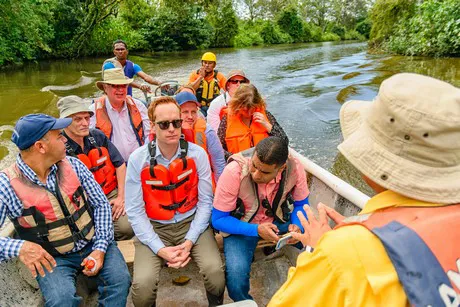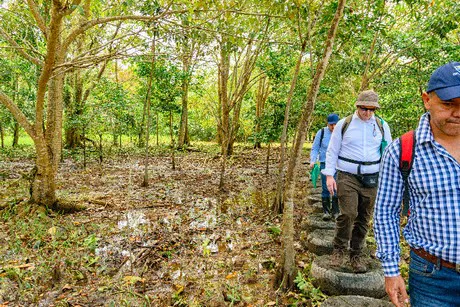Chiquita has shared its efforts to reduce its environmental footprint, saying it aims to preserve and enhance biodiversity while growing and delivering its bananas to customers worldwide.
The company said it ceased forest clearing for agricultural expansion in 2005 to focus on rejuvenating and re-engineering pre-existing farmland. Current production is limited to areas that can support long-term cultivation, and lands that are not suited for production are transformed into conservation areas. Chiquita partners with stakeholders and local communities to plant new trees and return previously cleared areas to their normal state. Success of reforestation is measured by tracking wildlife, the company reports. As an example. it said that in 2017, three new species – including Costa Rica’s largest mammal the tapir, a bell bird and a yellow spotted lizard – were found within conservation areas.

“At Chiquita, we value our commitment to protect the ecosystems in which we produce our bananas,” Jamie Postell, Director of Sales North America for Chiquita. “As an authority in the produce industry, we lead by example by implementing preservation tactics that will reduce our global impact and ensure environmental prosperity.”
Another project is the Nogal reserve, which was founded by the company in 2004 in cooperation with the Rainforest Alliance. In Panama, Chiquita partnered with German retail and tourism group Rewe to create a conservation area in the San San Pond Sak wetlands, which it donated to the local community in 2018.

Since the 2018 donation and the conclusion of the project, Chiquita and Rewe have continued to finance the maintenance, surveillance and protection of the reforested land. Several species live in the area, in particular sea turtles and manatees. From the beginning of the project in San San, at least 30,000 hatchling turtles have been released.
For more information:
www.chiquita.com
